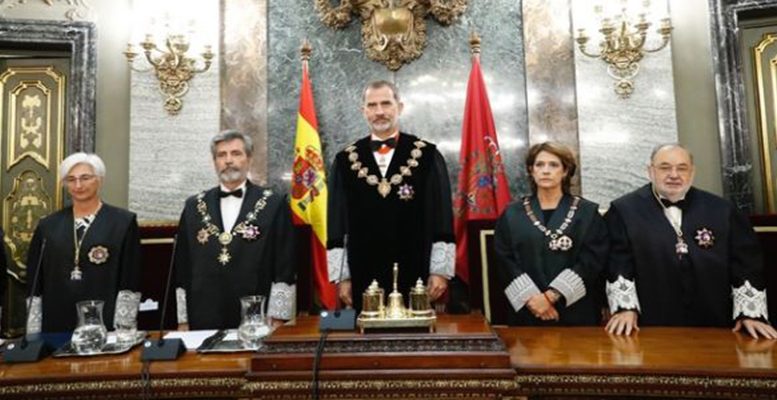Fernando González Urbaneja | The deadlock to renew the institutions (more than a thousand days of delay in the CGPJ) indicates that the quality of Spanish democracy is mediocre. And it is not because of the regulated procedures, but because of the application of those procedures by the responsible (or rather irresponsible) politicians. Those in government (socialists and partners) accuse the opposition of being unconstitutional. Meanwhile, the latter’s response is that it is the others who are making a mockery of the Constitution. In fact, they are all mocking and mistreating it.
The PP’s claim that judges should elect judges is pure boastfulness; neither the Constitution clearly establishes this principle nor is it the norm in the most advanced democracies, particularly in Europe. The procedures for electing judges’ governing bodies in Europe are varied and subject to many nuances in each country. Judges are not the only ones who appoint, nor are the other branches of government the only ones to do so. In all cases there are mechanisms of moderation and restraint to avoid encroachment on powers and guarantee neutrality and independence.
The aim is to avoid abuse of power, manipulation, dependence or excessive influence. This is what procedures are for, but above all the will of those involved in these processes. The Spanish sin is that the choice of those who should govern the institutions is (de facto) subject to the political parties and their main leaders. The vice lies in the fact that it is Sánchez and Casado who choose, even if all this then goes through feigned and compliant procedures in the legislative chambers. The problem is that the system accepts the lots assigned by the parties with the power to do so. The problem is that each group of those elected is assigned the surname “socialist” or “popular”, “progressive or conservative”. However, in reality, more than a few subsequent decisions do not conform to the arithmetic of the blocs.
The problem is not in procedure but in practice, in the will of the party bosses who approve the lists. If Sánchez and Casado were up to their responsibilities, they could break the deadlock by asking someone solvent for a list of people with reasonable guarantees of independence and public service to do that, putting an end to the feelings of party discipline, cronyism and manipulation. It is not so difficult; they would contribute to improving the quality of democracy.





